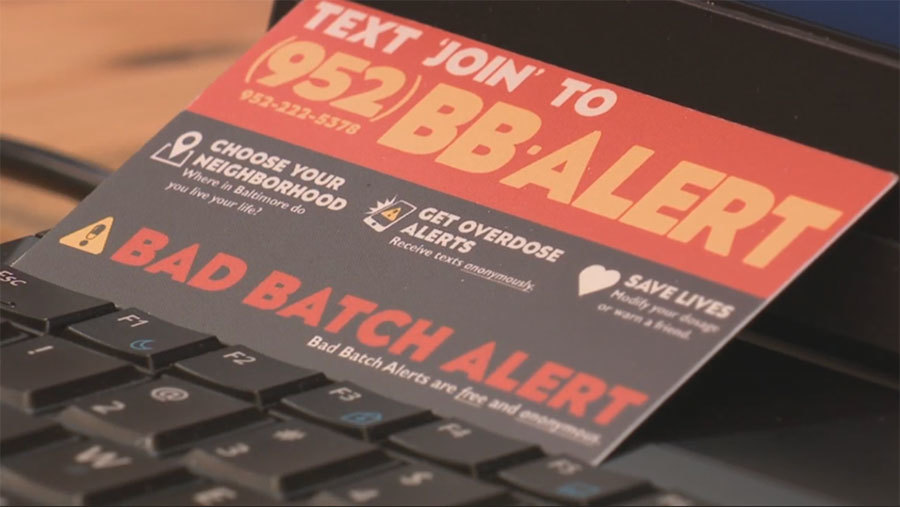
A local tech entrepreneur is trying to curb the massive spike in deaths related to the opioid epidemic one text at a time.
The Bad Batch Alert app is made for heroin addicts and their loved ones and essentially notifies them of any bad batches of opioids in the area. When an abnormal amount of overdoses in a neighborhood is detected, a text is sent out alerting users that a bad batch is in the area.
“It’s similar to an Amber Alert,” says creator Mike LeGrand, who started up Code In Schools in order to spread computer science education around Baltimore.
With the help of six teens and one mentor from that program, they started up Bad Batch Alert in October. He says, “Loved ones might use it, because they often care more about the people in the grips of addiction, than the people themselves do.”
In order to receive an alert, you must provide a phone number, which could initially be a turnoff for some users who don’t want to be tracked. “The app is an SMS app, not something you download from the App Store,” says LeGrand. He offers assurance that this app is meant to help and not catch people in the act.
“All phone numbers are encrypted, so they can’t be tracked back,” he says. “Also keep in mind that signing up doesn’t necessarily mean that you’re a user because a lot of friends and family of users will sign up in order to protect the user they know from dying.”
Whenever there’s an overdose, the local EMS is alerted and paramedics fill out the proper paperwork. After that, this information goes to the Baltimore City Health Department and, if there is an abnormal number of overdoses in an area, that information then goes over to the Bad Batch Alert app, which triggers an alert to go out to all of its subscribers.
“A lot of these users are isolated, so them having access to this app could save their lives,” says LeGrand. More than 700 people a year die from opioid overdoses in Baltimore City, and a huge part of that is caused by Fentanyl, a powerful drug typically used as an anesthetic or pain medicine, being laced into batches of heroin.
According to health commissioner Dr. Leana Wen, the Health Department strives to recruit “members of Baltimore’s thriving technology and design communities to address local public health challenges.”
Dr. Wen explains that reaching out to local tech companies with health interests isn’t new to them. “Baltimore is known for public health and for tech and design,” she says. “We want to increase awareness of potentially dangerous substances and provide resources to help with treatment and recovery.”
The Bad Batch Alert team is happy with their growth, as the app hit 200 registered users this past July, and LeGrand mentions plans of these alerts eventually growing to be statewide.
“I took a leave of absence from my job to work on this product,” he says “and I don’t regret it.”